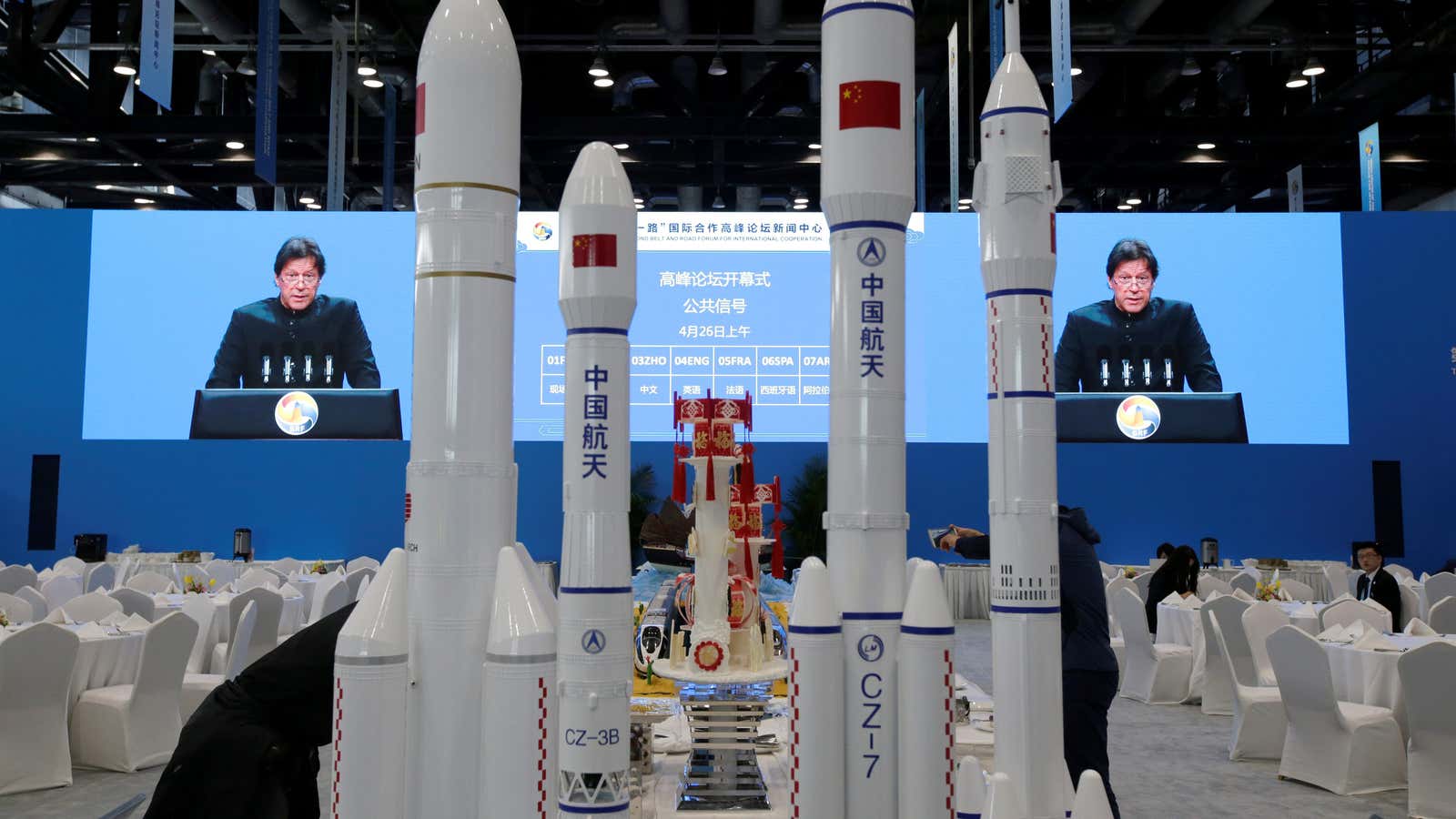This week, China’s space program suffered a failed launch for the first time in nearly two years when an attempt to send a satellite into orbit went awry.
In recent years, China has been full steam ahead in space missions. Its space program launched more rockets than any other in the world last year, and made history in January by landing the Chang’e-4 on the far side of the moon.
China’s official Xinhua news agency confirmed the launch failure on Thursday (May 23). The news came more than 12 hours after the launch.
The three-stage Long March 4 rocket took off at China’s northern Taiyuan Satellite Launch Center around 6:49am Beijing time, according to footage (video, link in Chinese) on the social-media platform Weibo. Xinhua said the rocket’s third stage had “abnormal operation,” and it is likely that engineers are working to figure out what went wrong.
The 150-ft (46-m) rocket carried an imaging satellite designed to help the Chinese government with intelligence gathering. The last use of this type of rocket was in May 2018, sending up a relay satellite to serve as a communication bridge between the earth and the moon’s far side during the Chang’e-4 mission.
China’s space program suffered its last failure in July 2017 during a second attempt to launch a Long March 5 rocket. It was a crucial operation to pave the way for China’s lunar sample return mission, which was scheduled to take place this year. China has since grounded the Long March 5. The State Administration of Science, Technology and Industry for National Defense, which investigated the launch, said the failure was due to (link in Chinese) a turbopump glitch in the rocket’s first stage.
The main contractor for the Long March rockets, state-owned China Aerospace Science and Technology Corporation, did not respond to a request for comments. The company launched 37 Long March rockets in 2018 and has said it’s planning to launch 30-plus this year.
The Long March series has been at the heart of China’s space program since 1970, when the country used the Long March 1 to launch its first satellite. The rockets, whose name commemorates the historic escape of the Red Army (link in Chinese) from Nationalist pursuers during the Chinese civil war, has also launched Beidou satellites, China’s answer to the US Global Positioning System.
In 2014, China began encouraging private space launches. So far, no Chinese startups have succeeded in getting a rocket into orbit.
